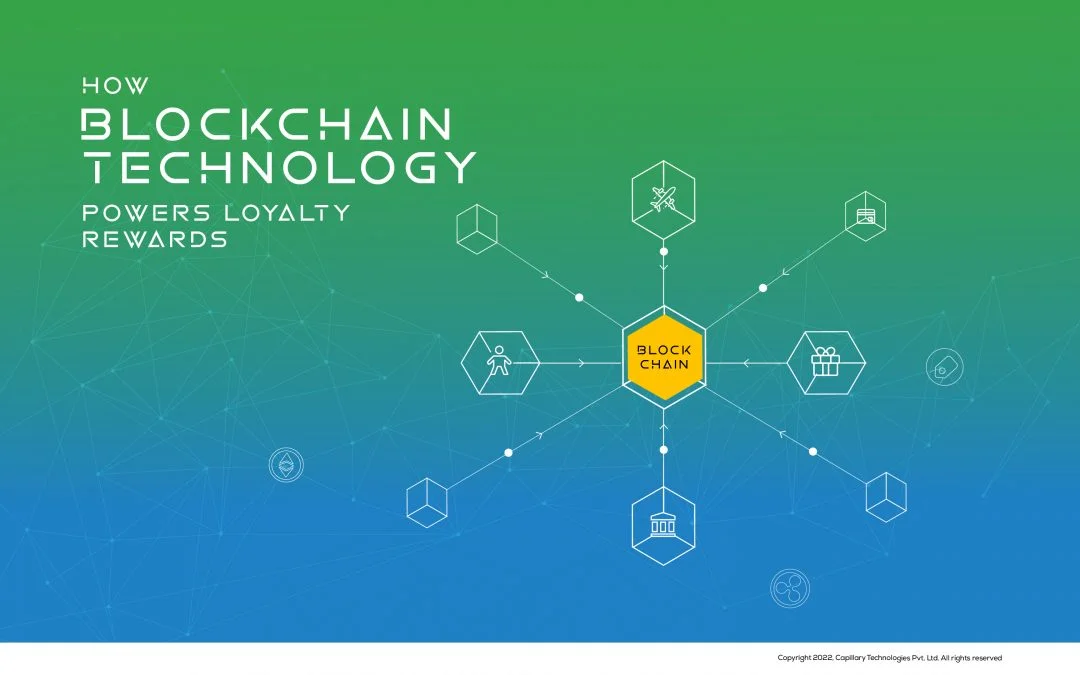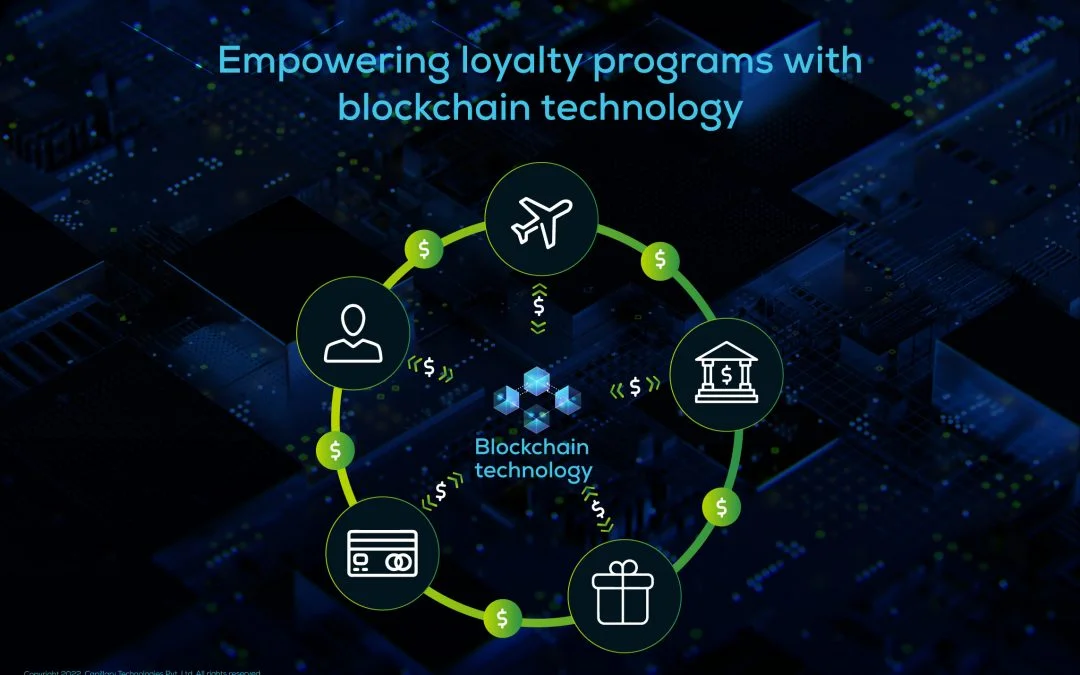- Design industry shaping loyalty programs
- Integrate easily and go live quicker
- Deliver hyper-personalized consumer experiences
Capillary named a Leader in SPARK Matrix™: Customer Loyalty Solutions, Q2 2024 Report Read more >

In the age of the metaverse, while crypto is the new currency, the blockchain technology that governs it is witnessing rapid and wide-scale adoption across services. Its enduring potential arises from its maximum-transparency promise for varied types of transactions. Blockchain is, thus, probably here to stay as a permanent solution to myriad cyber security breaches – growing tenfold during the pandemic alongside e-commerce. And while these developments are closely interlinked with immersive social experiences (vis-a-vis Web 3.0), together, they alter customer interactions forever. Brands that wish to retain their most loyal buyers will, then, not only make crypto wallets scalable but also incorporate crypto rewards: the next frontier of loyalty programs. Some leading ones are already doing so, but let’s get to that later.
Crypto rewards in loyalty programs are nothing but crypto cash-backs. They are part of loyalty programs that promise to deliver rewards in cryptocurrencies instead of real currency. In contrast to traditional loyalty programs, customers can now avail their benefits across multiple services and goods at once. This is essential because crypto loyalty rewards are designed around the same overarching principle of decentralization that governs cryptocurrencies. They integrate very easily with existing loyalty programs across multiple stakeholders like brands, sellers, managers, and system administrators through smart contracts that bring them all as partners on a secular blockchain-rewards network. Instead of spending millions on running multiple kinds of loyalty programs, brands that choose to partner and onboard themselves for crypto rewards will benefit from cost-saving as well as the unprecedented scale of crypto cash-backs. And what’s more, is that a self-executing code is all it takes to activate these rewards through social media or digital wallets.
The larger efficacy of blockchain does not warrant a complete overhaul of existing loyalty programs, but a seamless integration of crypto rewards within them.
What is needed is a mindset shift in this new age approach to loyalty programs altogether.
Meet Roman. Roman just signed up to buy tickets for a concert in the O2 Arena in London through his credit card. He gets crypto loyalty tokens transferred from both his credit card company as well as the entertainment booking site that offered the concert tickets.
Now, Roman checks into a major hotel in London and uses his accumulated credit card tokens to upgrade to a better suite. He has a fantastic experience and leaves a great review for the hotel, and uses his entertainment tokens to hire a limousine for the concert.
At the concert, he meets Sheila with whom he trades some of his entertainment tokens for new hotel points which he uses to extend his stay in London. With this exchange of loyalty tokens, all parties involved benefit while the varied services gain more loyalty for future trading to continue.
These earned crypto tokens no longer reside on separate applications of diverse programs offered by the credit card, hotel, or entertainment company, but instead are equitably gathered at one place due to blockchain.
Regulated transactions are set to become a thing of the past with the secure premise offered by blockchain applications. So far, while Bitcoin is its most widely trusted cryptocurrency, there are several others like Ethereum that have gained unimaginable impetus through NFTs (non-fungible tokens). But while blockchain’s best use is to maintain the records of digital transactions between sellers and buyers in the most secure manner, it actually serves a more special purpose from a rewards point of view. Without middlemen involved, all brands who subscribe to the crypto rewards ecosystem benefit almost equally from high customer loyalty, while the customers enjoy reaping benefits as per their changing needs. This transforms the customer experience altogether by offering crypto-cashback across multiple vendors at once. They will all profit equally from eliminating costs that go into running different sets of loyalty programs across categories. By granting customers full access to multiple reward programs through a singular wallet, crypto rewards will emerge as the most sought means to maintain loyalty in the near future.
Through simple digital signatures on reward applications of digital wallets – multiple brands can sign up for this ecosystem.
A lot of leading brands have globally already adapted to crypto reward programs. And most of their customers are first-time crypto users, who are learning to adapt to the model themselves. The loyalty ecosystem is being transformed by this new dimension, even with market volatility. These are exciting times from trading and speculation perspectives, and here are a few cases of companies that have successfully adapted to crypto rewards:
1. Singapore Airlines first launched KrisPay – an extension of their KrisFlyer program. A digital miles wallet was designed to allow customers to easily convert KrisFlyer air miles into KrisPay miles to spend on purchases at partner outlets through point-of-sale transactions. Members could convert their earned KrisPay loyalty tokens easily across partners.
Next, they launched its personalized and interest-based rewards extension through the app Kris+. It claims to have over 150 partners that are spread across 650 retail outlets today. Its UI enabled reward offers to be customized as per the most recent interests of its customers, thereby making their experience more fulfilling across partners.
In the airlines’ industry, these trends have caught up with leading competitors like Emirates which launched its Emirates Skywards Reward program as well as Russian Airlines S7 recorded tokens worth over a million by July 2020 through its own blockchain-driven crypto rewards.
2. Chanticleer Holdings is an investor in several small burger chains across America. They announced a major blockchain architecture partnership that enabled a loyalty program that allows a special cryptocurrency token called Mobivity Merit to be earned at any burger shop within the ecosystem which was then exchangeable across multiple partner brands. They encouraged higher sales for secure crypto value and more loyalty.
3. American Express launched a blockchain program with online wholesale retailer Boxed. They enabled a private system for Boxed to transfer customer information which merchants on Boxed can utilize to fulfill crypto rewards. Essentially, when a consumer makes a purchase on Boxed, the blockchain stores the data about the transaction without disclosing the card holder’s personal information. The details of the transaction trigger the creation of a smart contract which then awards points in a backend loyalty system.
The world of branded crypto rewards is only getting bigger with a host of SaaS companies adapting newer ways to enrich them. It is only a matter of time before they become the most incentivized means for the growth of loyalty programs at large.

April 19, 2022 | 4 Min Read
“Every contact we have with a customer influences whether

February 4, 2022 | 4 Min Read
In the age of the metaverse, while crypto is the new currenc